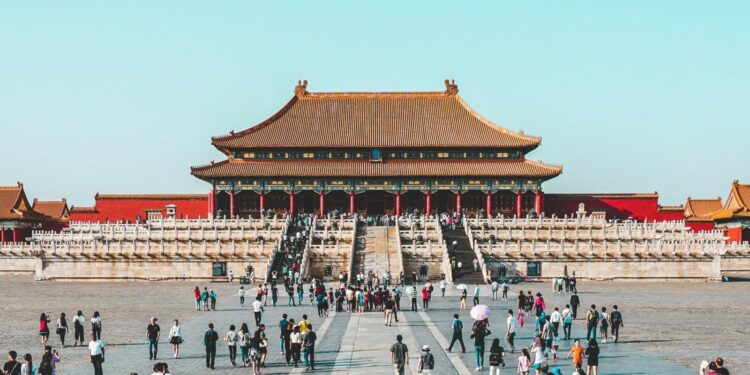In a renewed assertion of its territorial claims in the South China Sea, China has questioned the legitimacy of the 2016 arbitral ruling that favored the Philippines in a contentious maritime dispute. The ruling, delivered by the Permanent Court of Arbitration in The Hague, rejected China’s expansive claims based on its so-called “nine-dash line,” a move celebrated by the Philippine government and welcomed by other nations advocating for international law in the resource-rich waters. However, recent statements from Chinese officials indicate a persistent challenge to the ruling’s validity, raising concerns about ongoing tensions in the region. As both nations navigate this complex geopolitical landscape, analysts warn that China’s renewed stance could further complicate an already fraught relationship, while also impacting broader maritime security in Southeast Asia.
China’s New Stance on the 2016 Arbitral Ruling and Its Implications for Regional Stability
In a move that has stirred diplomatic tensions, China has reiterated its rejection of the 2016 arbitral ruling regarding the South China Sea dispute, specifically in relation to the Philippines. This declaration reaffirms China’s territorial claims and has significant consequences for the already volatile region. Analysts suggest that this stance could lead to heightened military activity and further diplomatic isolation of the Philippines, potentially impacting the security dynamics in Southeast Asia. The implications of this development could extend to various aspects, including:
- Increased Regional Tensions: China’s hardline position may exacerbate conflict with neighboring countries who share maritime interests.
- Impact on Bilateral Relations: The Philippines’ relationship with the U.S. and other Southeast Asian nations may shift as they respond to China’s assertiveness.
- International Law Debate: China’s challenge to the ruling raises questions about the efficacy of international law in resolving disputes.
Moreover, the geopolitical landscape in the Asia-Pacific region could experience significant shifts as countries reassess their alliances and strategies in light of Beijing’s unyielding stance. The potential for miscalculation in the contested waters remains high, prompting calls for multilateral dialogues and confidence-building measures. The following table outlines key stakeholders and their positions regarding the 2016 ruling:
| Country | Position on Ruling |
|---|---|
| Philippines | Upholds the ruling, seeks enforcement |
| China | Rejects the ruling, claims rights over the area |
| United States | Supports allies; calls for freedom of navigation |
| Vietnam | Opposes Chinese claims; favors multilateral talks |
Examining the Philippines’ Response Strategies to China’s Legitimacy Claims in the South China Sea
The Philippines has been navigating a complex geopolitical landscape as it responds to China’s persistent challenges against the legitimacy of the 2016 arbitral ruling concerning the South China Sea. This ruling, which invalidated China’s expansive claims based on the “nine-dash line,” was a significant legal triumph for the Philippines. In light of China’s recent maneuvers, Philippine officials have reinforced their commitment to uphold the ruling through a combination of diplomatic channels and international partnerships. Key strategies include:
- Strengthening Alliances: The Philippines is strengthening ties with allies such as the United States and other Southeast Asian nations to enhance collective security in the region.
- Engaging in Multilateral Dialogues: Participating in ASEAN forums and discussions to garner broader support for a rules-based approach to maritime disputes.
- Promoting Maritime Awareness: Increasing public and governmental awareness about the implications of China’s actions on national sovereignty and regional stability.
Moreover, the Philippine government is actively working to address the domestic implications of China’s incursions. The administration aims to implement measures that bolster the country’s maritime capabilities while continuing to pursue legal avenues to challenge China’s assertions. A proposed enhancement of the Coast Guard resources complements diplomatic initiatives aimed at affirming the Philippines’ rights to its exclusive economic zone. The table below outlines some of the planned initiatives and their respective timelines:
| Initiative | Timeline | Objective |
|---|---|---|
| Coast Guard Modernization | 2024-2030 | Enhance maritime surveillance and enforcement capabilities |
| International Coalition Formation | 2023-2025 | Build a unified front against unlawful maritime claims |
| Public Awareness Campaign | 2023 | Increase understanding of maritime issues among citizens |
The Role of International Law in Upholding Sovereignty and Navigating Maritime Disputes
The complexity of international maritime disputes is deeply interwoven with the principles of international law, particularly regarding the enforcement of rulings made by arbitration tribunals, such as the pivotal 2016 ruling on the South China Sea. This legal framework serves to uphold the sovereignty of states while ensuring a rules-based approach for settling conflicts. The United Nations Convention on the Law of the Sea (UNCLOS) plays a crucial role in this context, providing guidelines to define territorial waters, Exclusive Economic Zones (EEZs), and continental shelves. Despite China’s assertions questioning the legitimacy of the arbitral tribunal’s decision, the ruling remains a significant legal reference point, underlining the right of the Philippines and other nations to assert their maritime claims based on established international norms.
Amidst ongoing tensions, maritime disputes also highlight key challenges that nations face in reconciling their interests with international legal standards. The recent escalation involving China’s renewed claims necessitates robust diplomatic engagement and collaborative efforts among affected states. Important aspects include:
- Respect for International Agreements: Upholding treaties like UNCLOS to foster regional stability.
- Multilateral Dialogue: Encouraging discussions among Southeast Asian nations to achieve a collective stance.
- Conflict Resolution Mechanisms: Utilizing international legal avenues to address grievances and protect sovereign rights.
In this ever-evolving geopolitical landscape, navigating the intricacies of international law and maritime disputes remains imperative for maintaining peace and order in contested waters.
Concluding Remarks
As tensions escalate in the South China Sea, China’s renewed challenge to the legitimacy of the 2016 arbitral ruling underscores the ongoing complexities of regional diplomacy and maritime rights. The Philippines faces a critical juncture as it navigates its stance amidst an increasingly assertive Beijing. With both nations poised for potential clashes over fishing rights, territorial claims, and resource exploration, the international community watches closely, mindful of the implications for stability in one of the world’s most disputed waterways. As discussions continue, the resolve of the Philippines, backed by international law, will be pivotal in shaping the future of this contentious maritime landscape. The journey ahead promises to be fraught with challenges, but also opportunities for negotiation and collaboration. The outcome of this geopolitical impasse will not only define the Philippines’ maritime sovereignty but will also set a significant precedent for international maritime law and order in the region.














